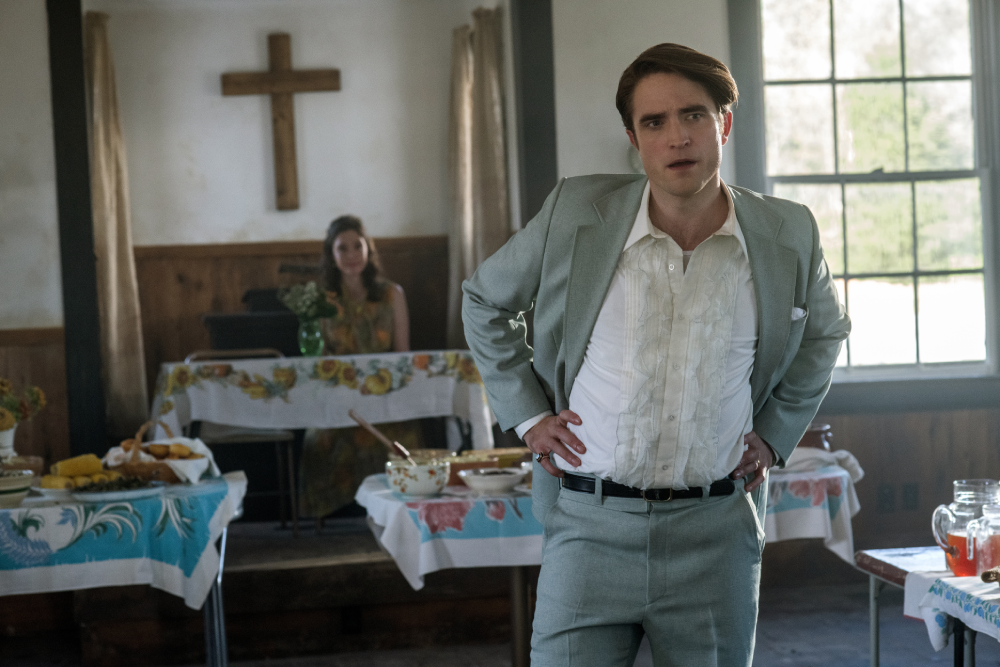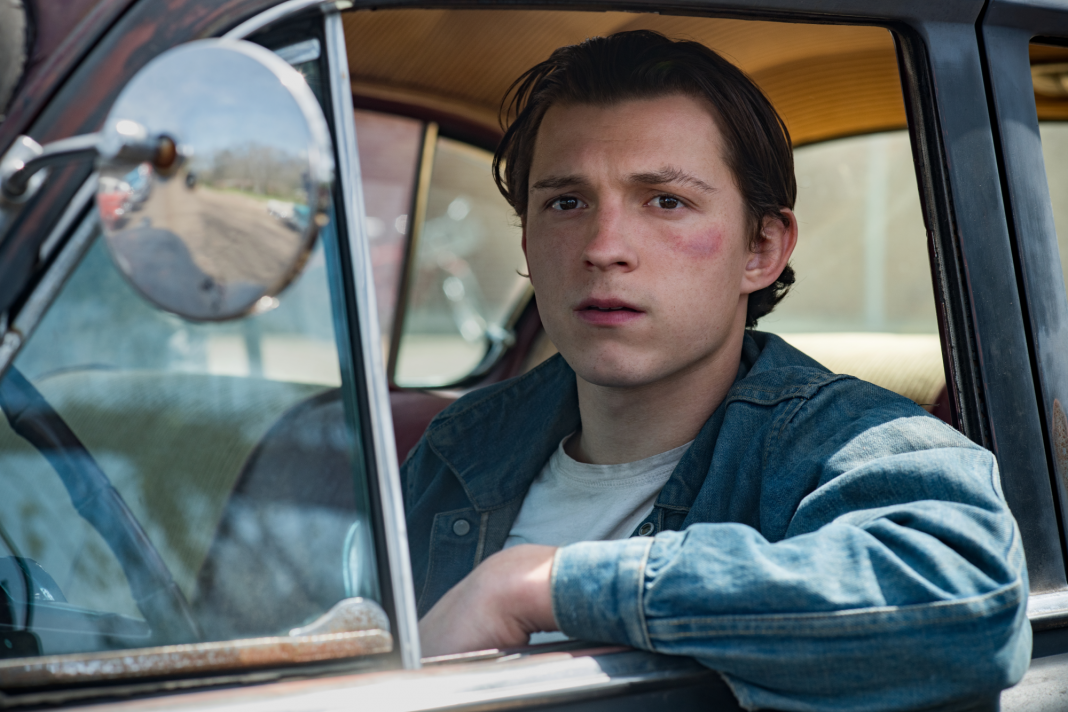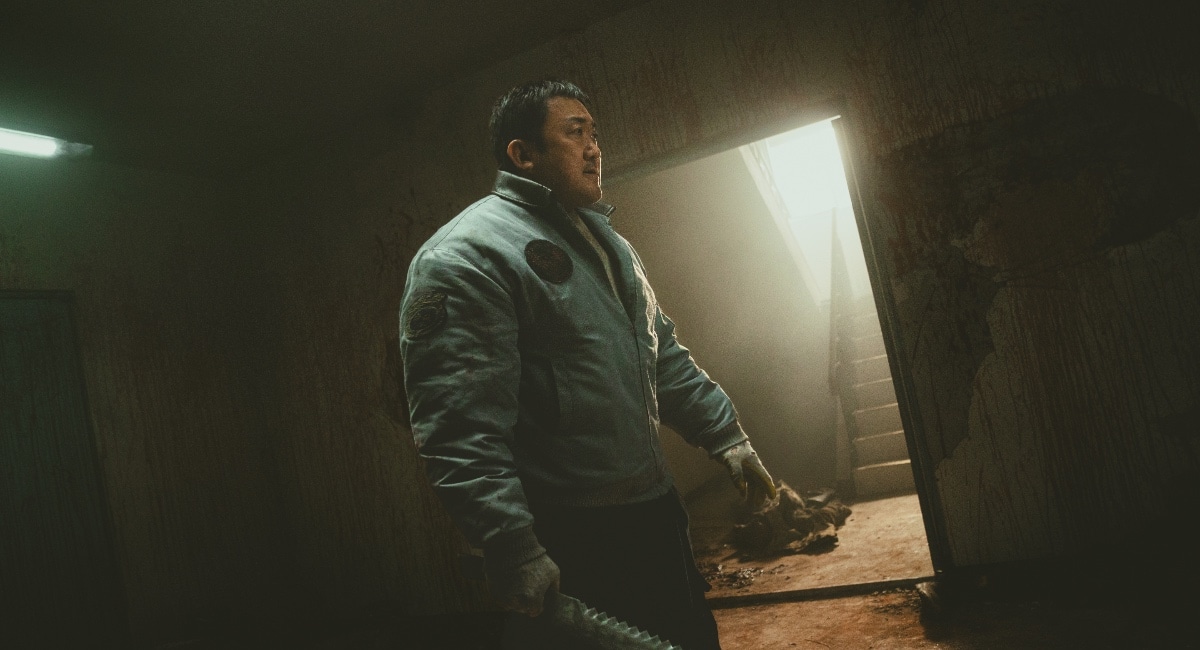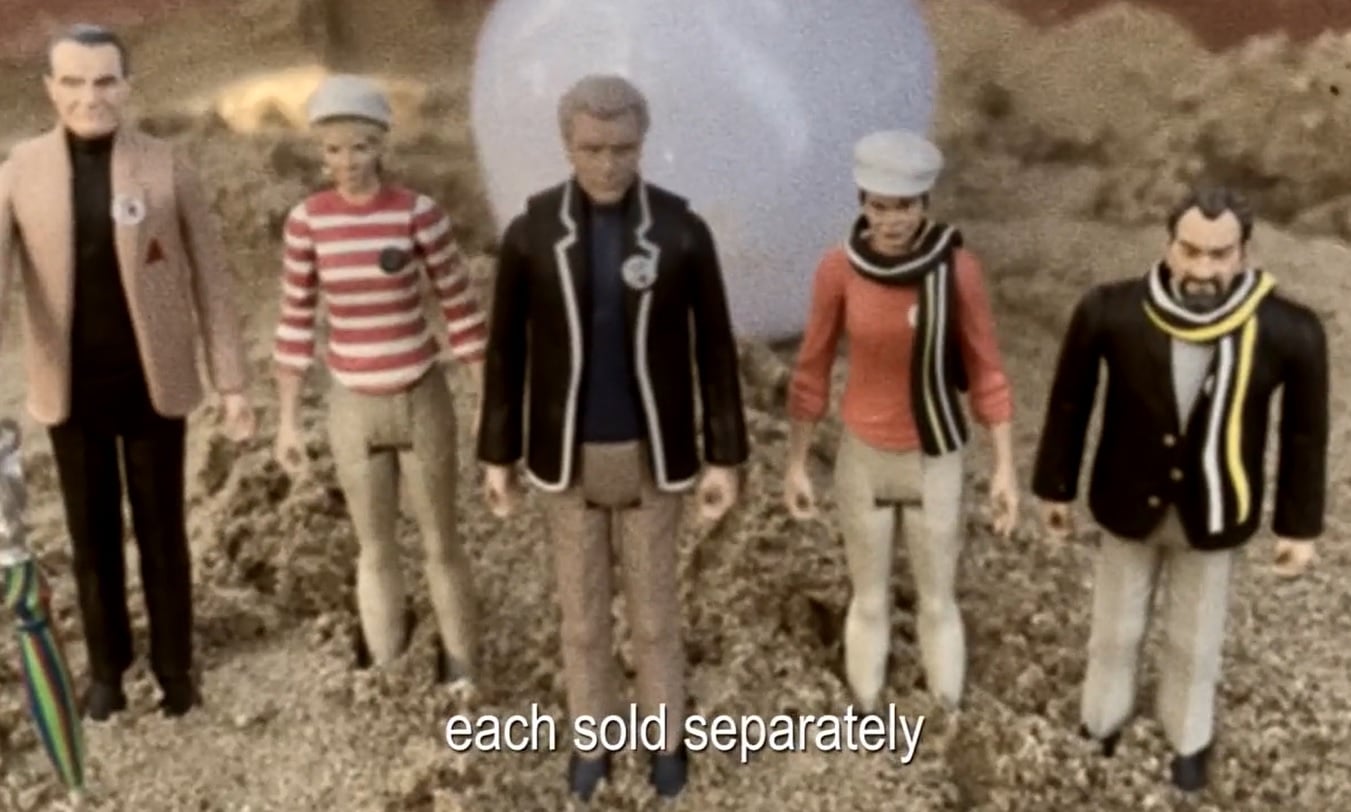The Devil All the Time delivers exactly what you would expect from a film within its genre. That is, it is grim, violent, and heavily gothic. A disparate cast of characters orbit around one another in the same corner of the world across decades to tell a story about cycles of violence, corruption of power, and a loss of innocence.
The following review contains mild spoilers for the film.
Based on a novel of the same name by Donald Ray Pollock, the story primarily follows Arvin (Tom Holland), a young man born in Knockemstiff, Ohio. After losing his mother, Charlotte (Haley Bennett), to cancer and his father, Willard (Bill Skarsgard), to suicide, Arvin moves to Coal Creek, West Virginia to be raised by his grandmother (Kristin Griffith) and great uncle (David Atkinson). Orphaned alongside him is Lenora (Eliza Scanlen), whose own parents died violently, though the truth of the manner of their deaths is unknown to her. As a result of this tragedy, Lenora is a shy and pious girl. She and Arvin are raised as siblings and often Arven has to step in to protect his sister from the bullies in their school who are cruel to her.
Arvin’s story really starts long before he is born as the plot of The Devil All the Time jumps back and forth between timelines and ties seemingly unrelated people together. Willard and Charlotte meet at a diner in Meade, Ohio on the same day and at the same diner that Sandy Henderson (Riley Keough) and Carl Henderson (Jason Clarke) meet for the first time.
People are brought together through fate rather than coincidence. Fate brings Sherriff Bodecker (Sebastian Stan) to Knockemstiff the night of Willard’s suicide. That same fate leads Helen (Mia Wasikowska) to meet zealot Roy Laferty (Harry Melling) who meets then meets the Hendersons. The film deals with circular storytelling, repeating the same sins as characters are trapped in cycles of violence. It’s no coincidence that Charlotte falls ill as Willard is beating up men in the community for making disparaging comments about his wife and then years later Lenora is seduced by Teagardin as Arvin is beating up the guys at school who harassed her.

The narrative is mired in the corruption of power and faith. Most notably this comes in the form of Reverend Preston Teagardin (Robert Pattinson), a sinister predator who arrives in Knockemstiff and seduces Lenora before denying responsibility for his actions after he leaves her pregnant and gaslights her about her experience. But there are other corruptions, we see Bodecker entrenched in local crime, burning the evidence of Sandy and Carl’s actions. Even Willard corrupts his son’s connection with religion through the building of his prayer log and teaching him to use violence to counter violence. For a movie that talks so much about God, every action taken by its characters is sacrilegious.
Arvin is a troubled and angry young man, his life is marked by sadness and he is committed to those that he loves. Praise has to be given to Holland for taking on the role of Arvin so wholly, diving deeply into the dark role without hesitation. He gives a standout performance, especially opposite Scanlen’s Lenora. It’s hard to find fault in any of the cast, who all surpass expectations for characters who can often feel like caricatures if you look at them on paper. There are times when the film truly feels like an amalgam of every Southern Gothic trope thrown together — whether it’s Melling’s psychotic religious zeal or Pattinson’s delusional rantings at the pulpit — but there is no shortage of talent and the performances feel authentic.
It’s hard to say where I stand on the ultimate story of The Devil All the Time. At times, I felt blinded by the performances, watching Holland step out of the familiar role of Peter Parker was mesmerizing. The same can be said for Pattinson’s narcissistic and nasty Teagardin (though his accent dipped in and out, but it’s a forgivable error). Antonio Campos and Lol Crawley‘s gothic atmosphere is inspired, with superb editing by Sofia Subercaseaux. The scene of Bodecker in the darkroom is particularly stirring. Pollock’s narration was a melodic touch that brought the story together nicely.
But, what was the ultimate message of the story? That justice can only be found at the end of the barrel of a gun? That we can’t really escape the path that is laid out for us? That sometimes your fate is to suffer in tragedy and there’s nothing to be done about it? It’s hard to feel the same kind of peace that Arvin feels in that stranger’s truck when there is so much uncertainty left to his story.
The Devil All the Time streams on Netflix September 16th, 2020.








